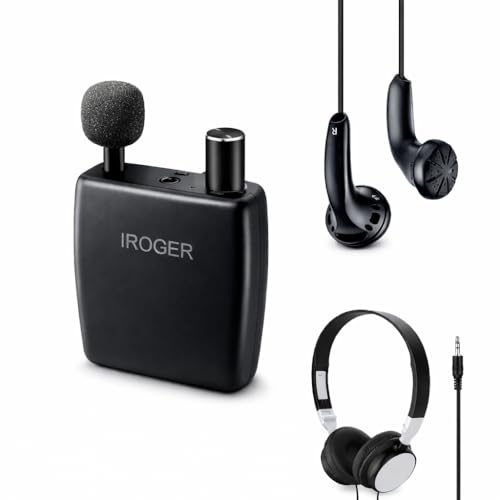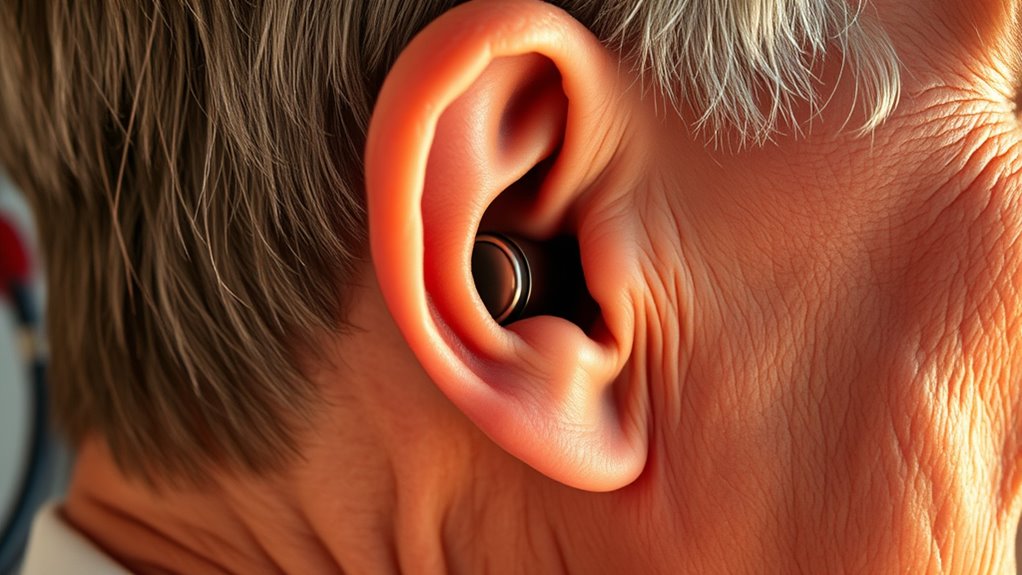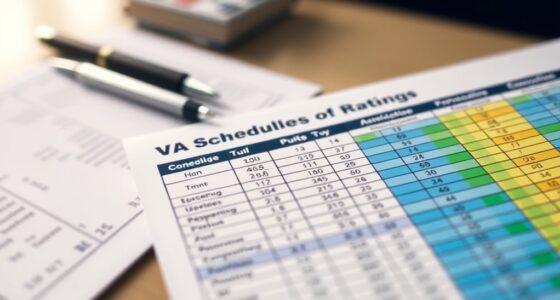To establish a service connection for noise-induced hearing loss, you need to show that your exposure to loud noises during military service caused your current impairment. This involves providing medical records, audiograms, and documentation of your noise exposure, like combat or training reports. Medical opinions linking your hearing loss to military noise exposure are essential. Supporting statements from fellow service members can also help. If you’re interested in understanding the full process, there’s more to learn.
Key Takeaways
- Demonstrate documented military noise exposure through medical records, audiograms, or witness statements.
- Show current hearing loss diagnosis linked to in-service noise exposure by a medical professional.
- Provide evidence of hearing conservation efforts and proper use of protective equipment during service.
- Establish a medical nexus connecting current hearing impairment directly to military occupational noise exposure.
- Include comprehensive documentation to support the claim of service-connected noise-induced hearing loss.

If you’ve experienced hearing loss due to exposure to loud noises during your military service, you may be eligible for service connection benefits. Many service members are exposed to noisy environments, whether during combat, training exercises, or routine duties. Recognizing and documenting these occupational exposures is essential when pursuing a claim for noise-induced hearing loss. The VA emphasizes the importance of hearing conservation efforts, which aim to reduce the risk of hearing damage from loud noises. If you can show that your occupational exposures involved loud sounds, such as gunfire, explosions, aircraft engines, or heavy machinery, this can strengthen your case.
Document military noise exposures like gunfire and explosions to strengthen your hearing loss claim.
During your service, did you receive audiometric testing or hearing conservation training? These records can serve as critical evidence when establishing your claim. The VA typically looks for a clear link between your military noise exposure and your current hearing difficulties. If you suffered from inadequate hearing protection or if your unit didn’t follow hearing conservation protocols, these factors can also support your claim. It’s imperative to gather all related documentation, including service medical records, audiograms, and any statements from fellow service members who witnessed your exposure.
The VA recognizes that occupational exposures in the military are often unavoidable, especially in combat zones or during intensive training. That’s why they consider these exposures as service-connected under certain conditions. Even if your hearing loss developed gradually after service, it can still be linked to your military noises if you can demonstrate consistent exposure and a medical diagnosis of hearing impairment. Be prepared to submit a medical opinion from a qualified audiologist or ENT specialist, linking your current condition to your military occupational exposures.
Prevention measures like hearing conservation programs are designed to protect service members from long-term damage. If these measures were not properly implemented during your service, it may work in your favor by establishing negligence or failure to provide adequate protection. Additionally, advancements in Natural Language Processing (NLP) technology, such as automated analysis of hearing loss patterns, are helping to diagnose and document occupational hearing damage more accurately. Remember, the goal is to connect your current hearing loss directly to your military occupational exposures, showing that the noise damage occurred during your service and was not caused by post-military factors. By thoroughly documenting your occupational exposures and emphasizing hearing conservation efforts, you increase your chances of securing the benefits you deserve.

Joanbro Personal Sound Amplifier for Seniors, Voice Enhancement Devices, Pocket Sound Amplifiers for Elderly People, Adults, 50dB Gain, with Headphones & Earbud, 3 Types Mics, 3 Tone, Volume Control
SUPERIOR PERSONAL SOUND AMPLIFIER: Applying noise cancelling, automatic gain control and advanced amplifying circuit, this sound amplifier device...
As an affiliate, we earn on qualifying purchases.
Frequently Asked Questions
How Long Does It Take to Process a Hearing Loss Claim?
Claim processing for hearing loss typically takes around 3 to 8 months, depending on various factors. You’ll need to undergo medical evaluations, which can add time to the process. Make sure your paperwork is complete and accurate to avoid delays. Once your claim is reviewed and medical evidence is submitted, the VA works to make a decision as quickly as possible, but processing times can vary based on workload and complexity.
Can Hearing Loss Be Service-Connected if Symptoms Appeared Years Later?
Did you know that nearly 30% of veterans experience delayed onset hearing loss? You can still get service connection even if symptoms appear years later. Your claim relies on medical evidence showing a link between your military service and your hearing loss, despite the delayed onset. It’s important to gather thorough medical records and expert opinions to support your case, proving the connection despite the gap in time.
What Evidence Is Needed to Prove Noise Exposure During Service?
To prove noise exposure during service, you need military records showing your occupational or training environments involved loud noise. Personal statements from you or witnesses can strengthen your case by describing specific incidents. Collect any documentation or logs indicating exposure to loud noises. This evidence helps establish that your hearing loss is connected to your service, making it more likely that VA will approve your claim.
Are There Special Considerations for Veterans With Pre-Existing Hearing Issues?
If you have pre-existing hearing issues, the VA considers how your service worsened your condition. They evaluate medical records and any evidence showing increased hearing loss due to noise exposure during service. You may qualify for veteran accommodations if your pre-existing condition worsened, but it is crucial to provide thorough documentation. Be proactive in presenting medical opinions that link your hearing issues to your service, strengthening your claim.
How Does Age Affect the Service Connection for Hearing Loss?
Your age can dramatically influence your service connection for hearing loss. Age-related factors, like natural hearing decline, complicate proving your case, making veteran age considerations essential. As you age, it’s harder to distinguish between hearing issues caused by service and those from aging. So, you’ll need stronger evidence and expert opinions to establish a clear link, ensuring your claim isn’t dismissed as just age-related deterioration.

IROGER Hearing Amplifier for Seniors, Personal Sound Amplifier, Smart Auto-Gain, Directional Microphone, Rechargeable with 120-Hour Battery, Headphones & Earbuds Included
Smart Auto-Gain Control – Enjoy crystal-clear sound at all times. iRoger automatically balances audio levels to enhance voices...
As an affiliate, we earn on qualifying purchases.
Conclusion
Ultimately, securing service connection for noise-induced hearing loss is like planting a sturdy seed in the fertile ground of evidence. With patience and the right documentation, you can nurture your claim into a flourishing testimony of your service. Don’t let the silence of uncertainty drown out your voice—stand firm and advocate for your right to hear the echoes of your sacrifices. Your perseverance can turn whispers of doubt into a chorus of recognition.

Audien Hearing ATOM PRO 2 Wireless Rechargeable OTC Hearing Aids, Premium Comfort Design and Nearly Invisible
Hear What Matters, Forget the Rest: Tired of asking, “What?” in conversations? The Atom Pro 2 is here...
As an affiliate, we earn on qualifying purchases.

Flaygo Hearing Amplifiers, Otc Hearing Aids For People With Hearing Loss, Sound Quality Restoration, Intelligent Noise Reduction, Standby 80h, One-Button Operation, Comfortable Wearing, White
Digital Chip, HIFI Sound Quality:Hearing amplifiers have a built-in 16-channel digital chip with intelligent noise reduction technology that...
As an affiliate, we earn on qualifying purchases.










